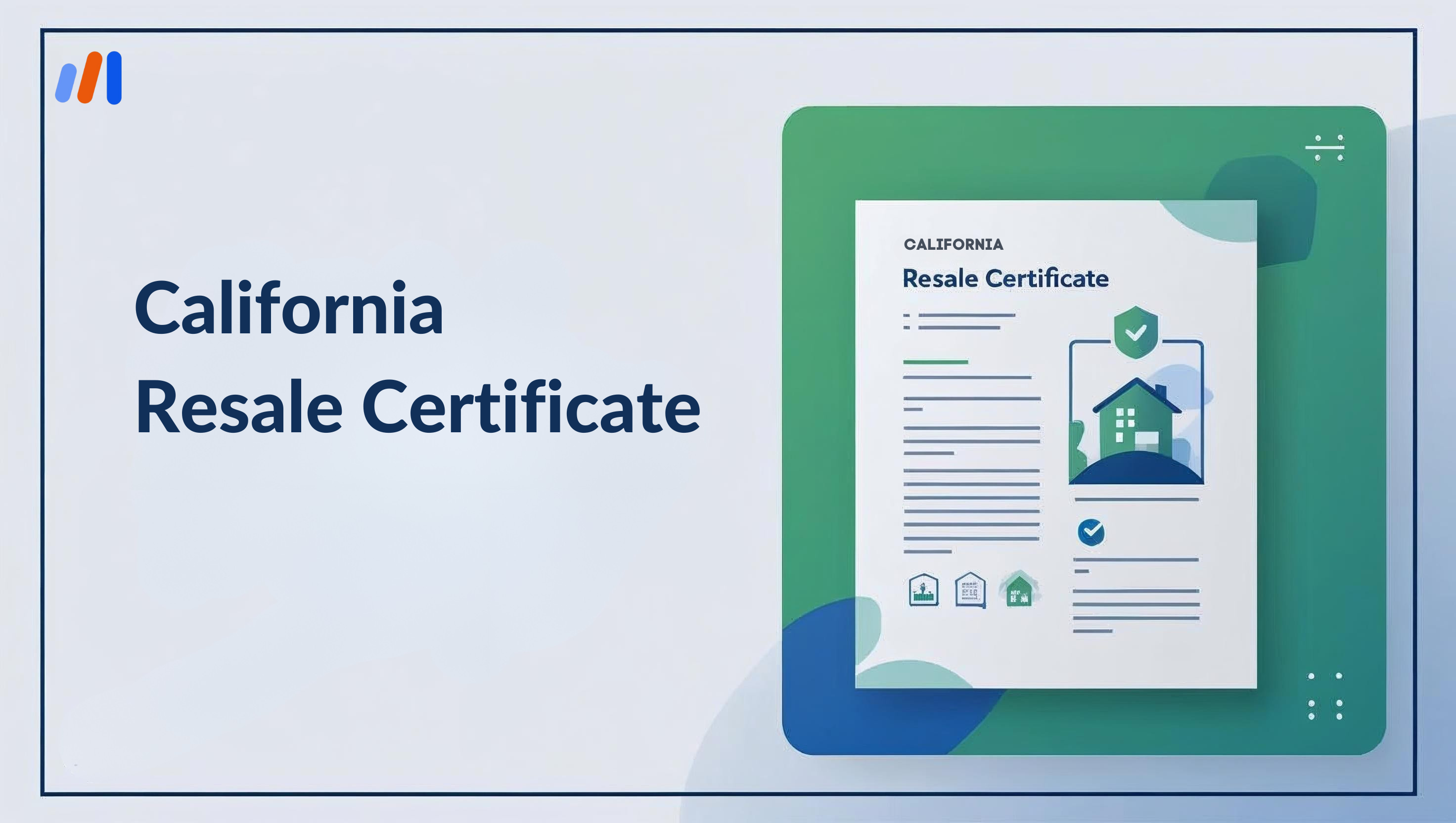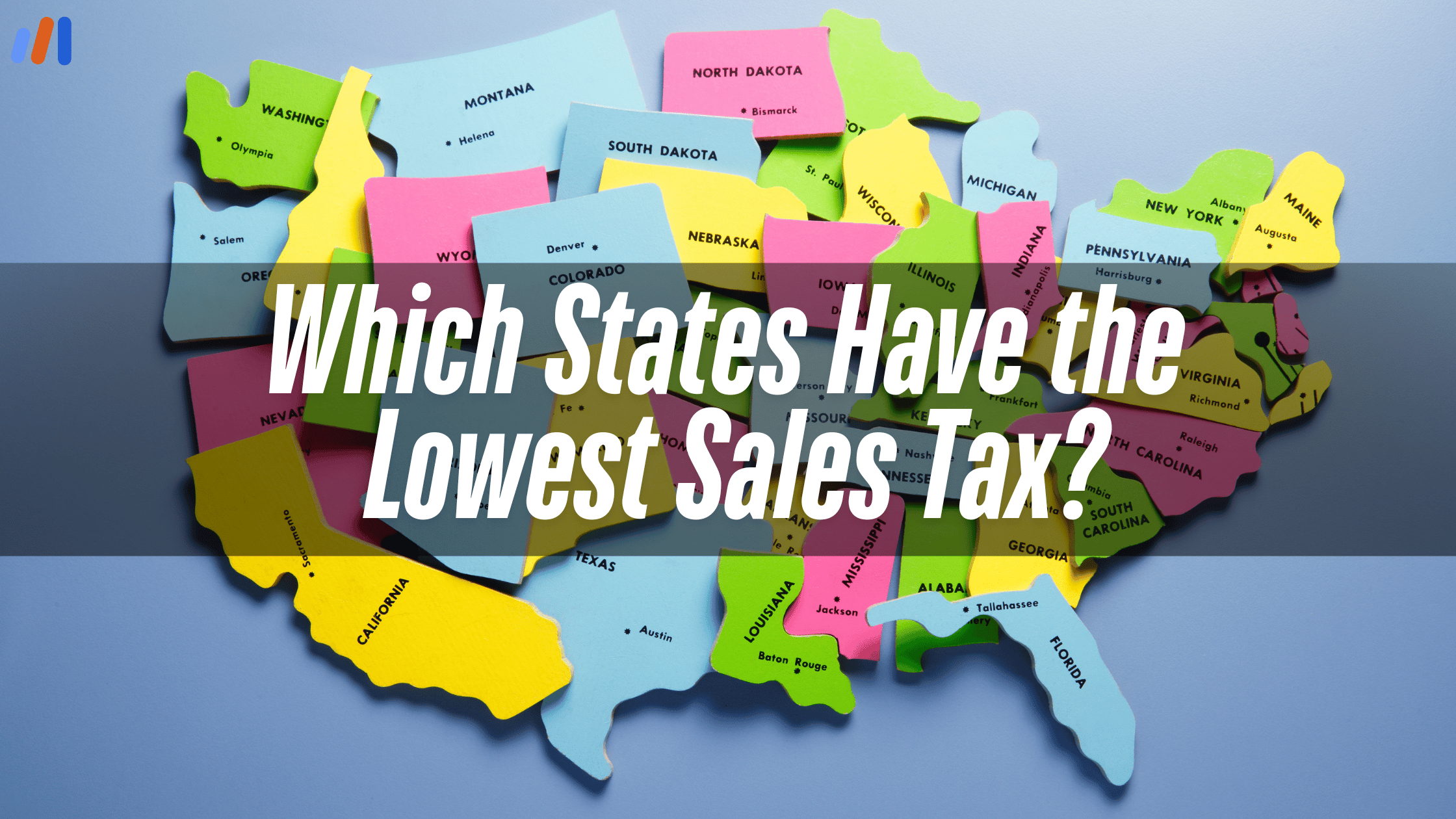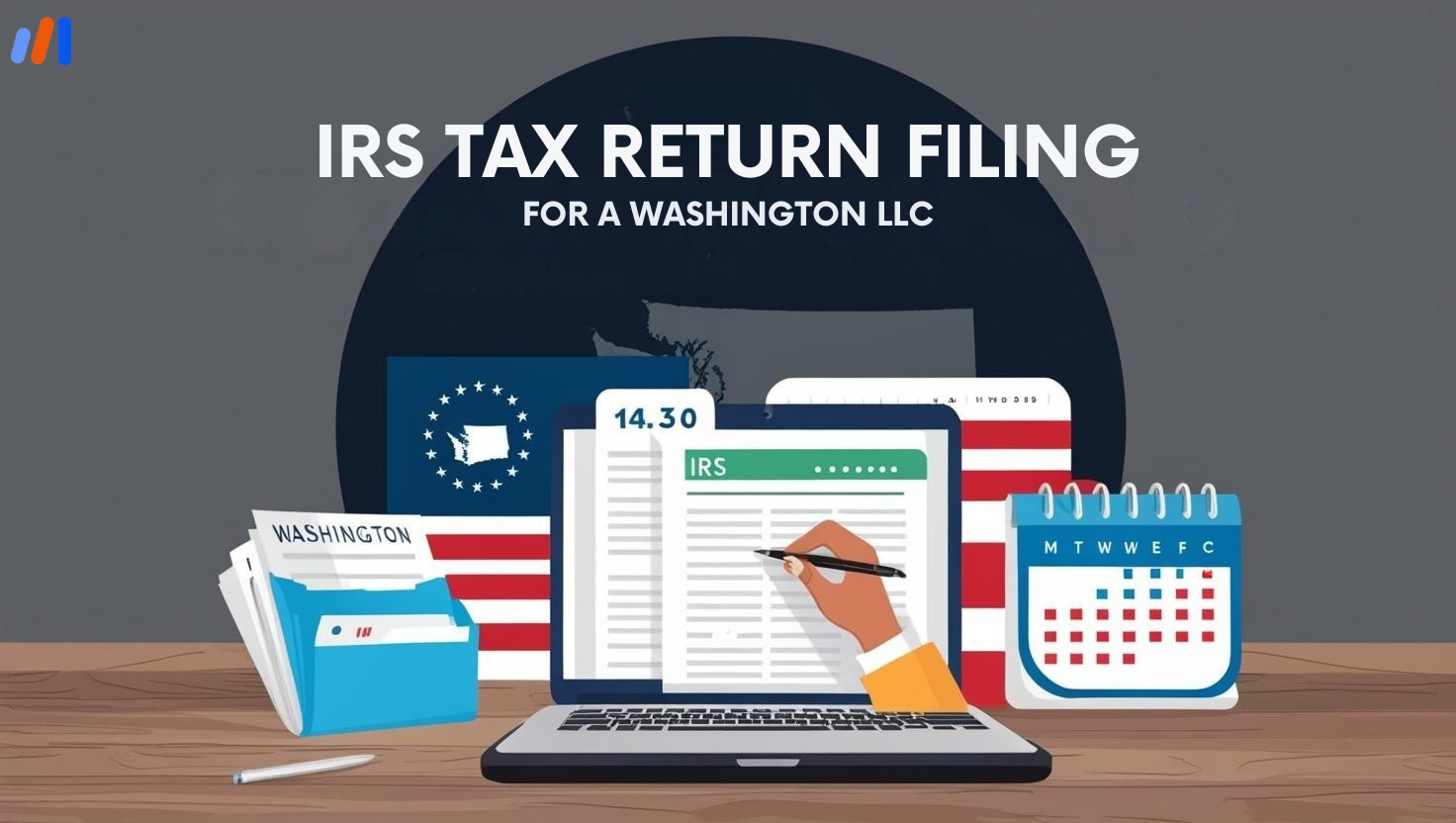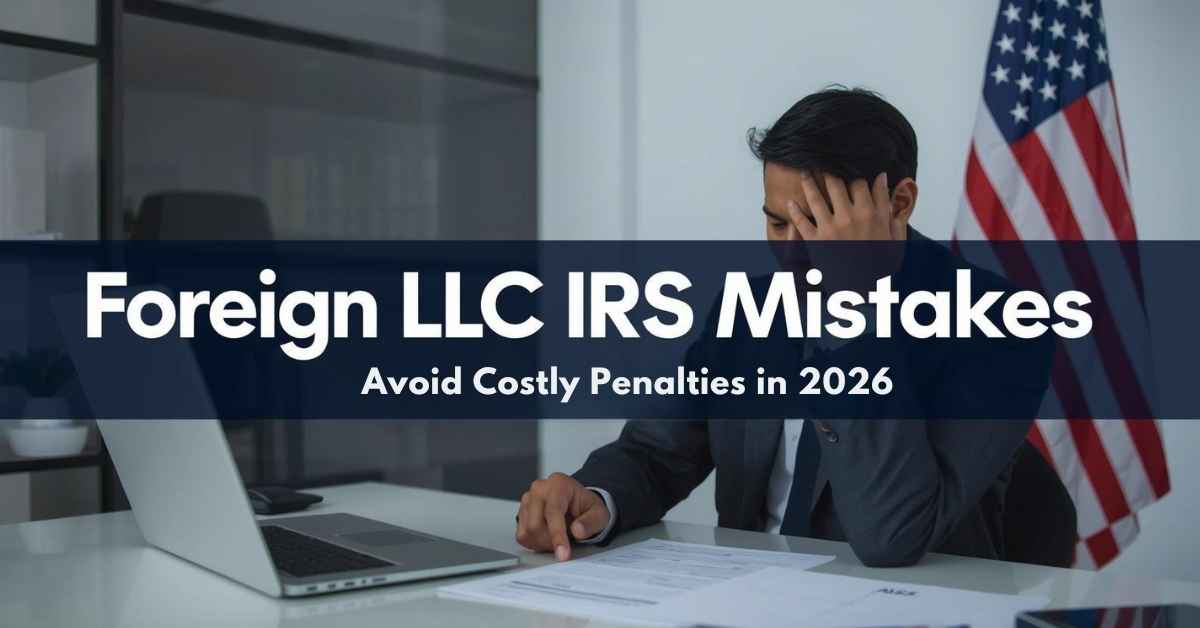As a business owner in California who also purchases products to resell them, understanding the relevance of a California Resale Certificate is important.
This document not only assists in legally exempting sales tax on inventory purchases, but also helps you stay compliant with the California Department of Tax and Fee Administration or CDTFA.
In this guide, we will elaborate on what a resale certificate is, who needs it, how to obtain it, when and how to use it, and the mistakes often made. Let us begin.
What Is a California Resale Certificate?
California Resale Certificate, in broad terms, is a document that permits the purchase of goods for tax-exempt resale by selling them to the end customers. This acts as confirmation for the seller that a buyer is not the end purchaser, hence sales tax should not be levied on the supply.
It is common practice to use this certificate in wholesale purchases between retailers, suppliers, or manufacturers. Instead of collecting sales tax, the seller collects a resale certificate, which they are required to keep in case of audit by the CDTFA.
Key Features:
- This document can only be issued by registered users, and so it needs to be specific to a business with a valid California seller permit.
- Usually, it’s sent to a supplier or wholesaler, and not to the state.
- Purchases made for personal use or items used within the business do not apply.
Who Needs a California Resale Certificate?
A resale certificate is necessary for a person or business engaged in purchasing and reselling tangible personal property within California. This includes:
✔️ Retailers
Store owners, boutiques, convenience stores, and franchises that buy inventory at retail also purchase in bulk.
✔️ eCommerce Sellers
Sellers on Amazon, Etsy, Shopify, eBay, and other online stores who buy inventory from wholesalers or manufacturers also order inventory.
✔️ Wholesalers and Distributors
Companies that purchase goods in bulk and sell to other businesses for resale or for manufacturing are also referred to as wholesalers.
✔️ Drop shippers
If you have a dropshipping business, your supplier may ask for a resale certificate to avoid paying sales tax on the resale.
✔️ Manufacturers
Those who buy raw materials or parts that will be included in a finished product for resale also need a resale certificate.
If your business undergoes frequent purchases of items meant for resale, obtaining a resale certificate becomes helpful and important.
How to Obtain a California Resale Certificate
California resale certificate can be obtained by following a 2-step process:
✅ Step 1: Get a California Seller’s Permit
For you to issue a resale certificate, you need to get a California seller’s permit first. This permit grants you the following:
- The legal right to collect sales tax from your customers.
- Allows you to buy items without paying sales tax at the time of purchase
You can apply online at https://onlineservices.cdtfa.ca.gov/ at the California Department of Tax and Fee Administration (CDTFA) portal.
You’ll need to submit
- Business name and type (LLC, corporation, sole proprietorship, etc.).
- Federal Employer Identification Number (EIN).
- Physical business address.
- Names of business owners and partners.
- Estimated monthly sales.
Note: You will be glad to know that there is no charge for obtaining the seller’s permit. In some cases, you may have to make a security deposit.
✅ Step 2: Complete the CDTFA-230 Form
After obtaining the seller’s permit, you can complete the California Resale Certificate, Form CDTFA-230. This form requires the following particulars:
- The purchaser’s name and address
- Their valid seller’s permit number
- A general description of the goods being purchased
- A statement affirming that the goods are intended for resale
- Purchaser’s signature and date
Certificates of this nature are not sent to CDTFA; rather, issued to the supplier. It is the responsibility of the seller to maintain these certificates and documents.
Business Tip: Some enterprises decide to issue a blanket resale certificate to vendors they frequently collaborate with, which enables them to cover multiple purchases over time.
When You Can Apply A California Resale Certificate
A resale (or ‘resale’) certificate must be used within strict confines. The following are the guidelines concerning the application:
✅ Approved Use:
Obtaining inventory for resale directly to consumers.
Goods that will be sold as part of a product.
Bulk products that are purchased for packaging or repackaging and resale.
Items that are given to clients as part of a services agreement, such as promotional materials, merchandise, or marketing agency materials.
❌ Disallowed Use:
Tools, equipment, or computers purchased for business usage.
Ordering office supplies and furniture.
Shop for items intended for personal use.
Any purchase one makes that will not be resold.
Improper use of the certificate can lead to fines, back taxes, interest, and penalties, especially under audit scrutiny.
Responsibilities of Sellers and Buyers
From the Buyer’s Perspective:
Check that the seller’s permit is current and active.
Do not exceed the qualifying purchases using resale certificates.
At a minimum, signed versions of certificates must be provided to the seller by the time of purchase.
Eliminate all resale certificates you grant from your active documents.
From the Seller’s Perspective:
Preserve resale certificates for tax-exempt transactions for active collection.
Check the participant permit number’s validity on the CDTFA’s webpage.
Refuse to accept resale certificates that lack completion, expiration dates, and any indication of fraud.
Be ready to present these documents when required to do so under audit.
Key Problems to Avoid
Consider the most common wrongs companies make concerning handling resale certificates in California:
⚠️ Misuse of certificate on operational or personal engagements
Do not utilize your resale certificate to purchase office furniture, laptops, or signage. The only use is for items purchased to resell.
⚠️ Inaccurate/insufficient information submission
Ensure the business name, address, and seller’s permit number are all correct before submitting the form.
⚠️ Not maintaining resale certificates in the system
Sellers need to maintain resale certificates for four years, as they may be tax audited.
⚠️ Taking a resale certificate issued in a different state
California has specific requirements regarding its resale certificate. For businesses located out of state and wanting to sell in California, they need to register for a California seller’s permit to obtain a valid resale certificate.
Conclusion
Retailers, open to wholesale and eCommerce, require California Resale Certificates as they serve essential business functions. Resale certificates help reduce upfront business costs due to the elimination of sales tax on inventory purchases while enabling compliance with state tax regulations.
It does, however, comprise responsibilities such as keeping accurate records and the correct usage of resale certificates.
In the account delineated above, guarantees should also be given that the resale certificates are not issued arbitrarily but only to qualifying vendors who meet the set criteria for certificates and purchase orders.
Need Help Getting Started?
EasyFiling assists in all issues relating to one’s first California seller’s permit, issuing a resale certificate, or tax obligations that come with being a new business owner.
👉 Contact EasyFiling and bring ease to your business compliance concerns through expert help on permits, LLC formation, virtual addresses, and bookkeeping services.
Frequently Asked Questions (FAQs)
1. If I only sell online, do I still require a California resale certificate?
Yes. When selling to customers in California and utilizing inventory from vendors, you are required to have a seller’s permit. Additionally, you may employ a resale certificate to forgo sales tax on pertinent purchases.
2. Is there a renewal process for resale certificates?
There is no formal expiration date, however, you should renew your certificates after any changes to your business name, business address, or seller’s permit number. Some vendors may also periodically request updated copies.
3. Can I use one certificate for all my suppliers?
No. Each vendor from whom you make tax-exempt purchases needs to be issued a separate certificate.
4. Can out-of-state businesses apply for a California resale certificate?
Yes. If your business is selling in California or purchasing from a California-based supplier, you need to register with the CDTFA and obtain a California seller’s permit. Only with this permit can you issue valid resale certificates.
File Your LLC Today
25$ off with a coupon
Lock in EasyFiling's transparent rates and get lifetime compliance support at no extra cost.
Get Started Now







